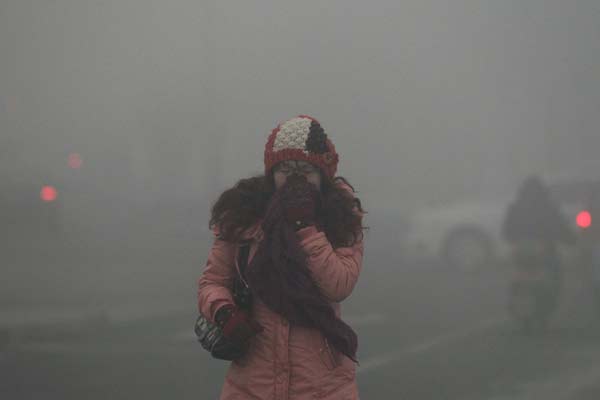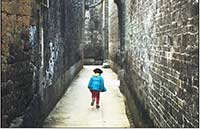Minister unveils measures to cut pollution
By Wu Wencong (China Daily) Updated: 2013-01-25 07:35The program to combat pollution will place greater emphasis on monitoring, gathering and releasing information and tackling PM2.5, the minister leading the fight for cleaner air told a major anti-pollution conference.
Environment Minister Zhou Shengxian said on Thursday that 39 more cities will start monitoring PM2.5 and release the readings to the public by December.
Similar monitoring was initiated by 74 cities in 2012. Readings of PM2.5 - particles whose diameters are smaller than 2.5 micrometers that can enter the lungs and bloodstream - are one of the six indicators that are being publicized. The other five are readings of sulfur dioxide, nitrogen dioxide, respirable particulate matter (PM10 or smaller), ozone and carbon monoxide.
Zhou was addressing the 2013 environmental protection work conference.
He said emissions of nitrogen oxides in 2012 were reduced by 2.8 percent compared with 2011 levels, and sulfur dioxide by 4.5 percent.
 |
|
A woman covers her nose when walking through dense fog caused by heavy pollution in Beijing on Tuesday. [Bai Jikai / for China Daily] |
The new target in 2013 for nitrogen oxide reduction, largely due to vehicle exhaust, has been raised to 2.5 percent from 2 percent.
Zhou hoped that all cities will aim to get PM2.5 levels lower than 35 micrograms per cubic meter. About 70 percent of cities fail to meet the current clean-air standard.
He set a timeline for cities with different levels of pollution to meet standards.
"Cities with major air pollution exceeding the standard by less than 15 percent should try to get it within the standard by 2015. Those that exceed the standard by between 15 to 30 percent should try to reach the goal by 2020. And those that are emitting more than 30 percent beyond the standard should make long-term plans and try to set a deadline of 2030," said Zhou.
Related:
74 Chinese cities release real-time PM2.5 data
PM2.5 kills thousands, researchers say
Heavily polluted Lanzhou city to publish PM2.5 data
High concentration of PM 2.5 in Beijing's air
- Emission of major pollutants reduces in China
- Stricter car emission rules to fight pollution
- Pollution, traffic hot topics for advisers
- Anti-pollution plan gets mixed reviews
- Beijing to restrict cars on roads in polluted days
- Heavy pollution in Beijing as smog returns
- Shanghai plagued by heavy pollution
- Pollution triggers breathing woes
- Pollution may make economy stumble
- Permanent station plans ride on mission
- Ex-police chief involved in wrong execution jailed for graft
- Record fund will expand to 100b yuan
- China establishes largest online data platform to store court cases
- Transplant surgeries could set record
- Duterte awaits 'soft landing' on first state visit to Beijing
- China to play important role in building more powerful telescopes to observe distant galaxies
- China launches manned spacecraft
- Cancer agent found in 44 cities' drinking water
- Agreements signed to help poor ahead of Poverty Relief Day










